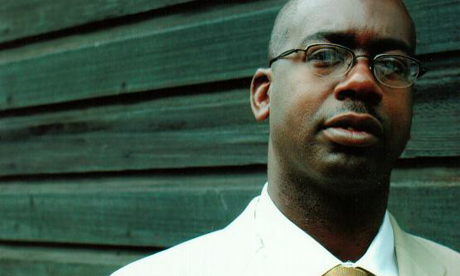Panel examining the riots lacks independence and teeth

Patrick Vernon, Hackney councillor and chief executive of the Afiya Trust
It has been a month since the riots in England took place, and for a brief moment their impact was similar to the hurricanes that can plague North America and the Caribbean during this time of year.
I was in Jamaica on holiday during the unrest and was approached by radio and television stations in Kingston to give a diaspora perspective on the riots. It was less than a year since Jamaica had experienced its own problems, with a drugs overlord under siege, over 70 people killed and destruction to property we could not imagine in the UK.
Many Jamaicans were anxious, but at the same amused, that Britain had its own problems around civil disobedience and conflict. Many also recognised the impact of racism and globalisation on young people, particularly in deprived areas.
After returning to the UK, I recognised a growing trend among political pundits and commentators which I describe as “retro racism”: where Victorian-style moral panic debates are used to describe, in particular, black communities’ lifestyle, cultural reference points and historical relationships with wider society as mad, bad and dangerous.
I think everyone now recognises that the victims and rioters reflected a cross-section of society, which makes the analysis and debate on the riots more complicated and challenging compared with previous unrest over the past 30 years.
What we need is a non-judgmental perspective in understanding and exploring the causes and potential consequences of the riots, and clear and focused changes around public policy.
But will the proposed independent panel, announced by Nick Clegg and chaired by Darra Singh, chief executive of Jobcentre Plus, provide any of the answers we are seeking to address the big issues around young people, policing, race relations, social and economic inequality and the impact of globalisation?
I have big reservations. Especially concerning the independence of the panel. How, for example, can its chair, who runs Jobcentre Plus – a government agency at the forefront of implementing the government’s welfare reforms – then demonstrate how people from disadvantaged communities will be supported in getting employment, especially in areas such as Hackney, Tottenham, Lambeth, Liverpool, Manchester and Birmingham where unemployment levels are double the national average?
How can the panel be described as grassroots when the membership does not reflect the cultural diversity and young people affected by the riots? And how will the panel demonstrate that it will not be merely a cosmetic exercise in community engagement and political expediency; that it will not simply rehearse the argument that all rioters are morally deficient?
For these reasons, a number of grassroots organisations have decided to boycott the panel process. It would not surprise me to see alternative riot panels across the country examining a wide range of issues including community cohesion, public health, young people, criminal justice, community resilience and social capital.
Why can’t local authorities in partnership with grassroots community organisations develop their own independent reports to be debated in parliament, council chambers and youth parliament forums?
It is disappointing and an indictment on the coalition government that it did not establish a public inquiry into the riots, reflecting their seriousness. This independent panel is merely a shadow compared with the Scarman, Cantle and McPherson inquiries – which had the credibility and clout to call for evidence, cross-examine key agencies and organisations, and make clear recommendations that all political parties were forced to take seriously. They have shaped public policy development over the last 30 years.
An inquiry process is not a cure-all but does allow society to look in the mirror and reflect. The riots in August further show the cracks in the mirror that represent Britain’s divisions in terms of race, class, and gender. And the cracks demonstrate that we are a long way from a post-racial society.
• Patrick Vernon is chief executive of the Afiya Trust
guardian.co.uk © Guardian News &
Media Limited 2010
Published via the Guardian News Feed plugin for WordPress.
